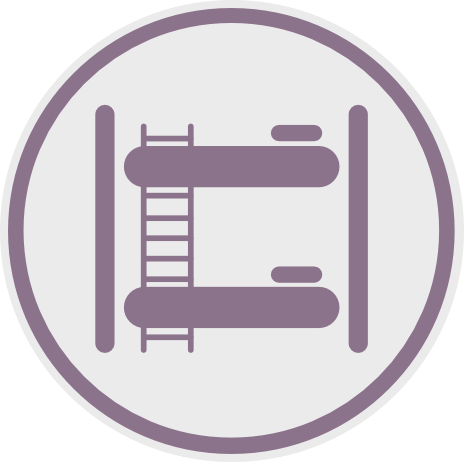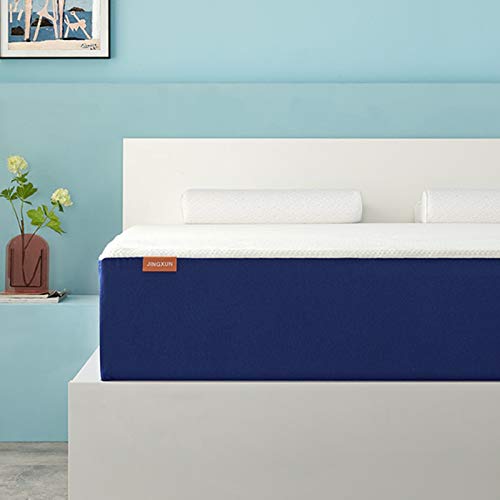11 Ways To Fully Defy Your Bunk Bed For Kids
페이지 정보

본문
 Choosing a Bunk Bed For kids bunk bed
Choosing a Bunk Bed For kids bunk bedA bunk bed can bring siblings closer and give them a sense of adventure. It can also accommodate an extra twin or full mattress on the bottom for sleepovers.
Before purchasing a bunkbed for your child, be sure to consider these safety tips. Make sure that the ladder and the stairs are securely fixed to the frame and that the guard rails don't have gaps large enough to cause strangulation.
Safety
Bunk beds can be a fantastic space saver for kids However, they can be risky if not set up properly and supervised. Make sure you choose beds that have full-length guardrails both on the top and bottom bunks. Choose a bunk bed that has been tested for safety by a third party lab and is in compliance with all CPSC requirements. If possible, assemble the bunk bed in a room with no doors or windows that can open to prevent children from leaving the bunks during the night.
Take into consideration the weight capacity of your children and their age range when selecting a bunk bed. Some are designed for younger children only, whereas others are able to accommodate adults and teenagers. Also, consider if you prefer the flexibility of having a trundle bed at the bottom or if you'd prefer to use a single twin mattress for both beds. In addition, if you're using the bed for more than two Kids Bunk beds with mattresses, make sure the beds are compatible and that you have enough space in the room to comfortably accommodate both beds.
Some children are better at sleeping on the top bunk than others, and it's crucial to assess their readiness for a bunk bed regularly. Experts advise that children under six years old do not be able to sleep on the top bunk. They might not have the coordination or spatial awareness to climb the ladder in a safe manner.
If your children are often having friends frequent visits, ensure they are aware of the rules for bunk beds, including not using the ladder, and not hanging or rough-housing from the guardrails. Encourage your children to keep jewelry, belts and jump ropes out of the bunk bed. These items can be strangulation hazards. To provide additional security some bunk beds have stairs instead of ladders and can be an excellent alternative for children who struggle climbing. Lights for night can be put on bunk beds for children to help them safely navigate to and from the top bunk at night.
Space-Saving
Bunk beds make the most of limited floor space by elevating sleeping areas to open up more room to play or study. While this option is great for kids' bedrooms they can also create an impressive focal element to a living or dining area.
Be aware of the size of your room and the age of your child when selecting the best bunk beds for your children. Children typically move to the top bunk at six or eight years old, when they begin to demonstrate the maturity and dexterity required for this arrangement. You know your child best and you should evaluate their readiness and make sure they're comfortable and confident of the transition.
Many bunk bed options include ladders or stairs that offer easy access to the upper levels. Stairs occupy more floor space than ladders, but they can be safer for kids beds as they learn to maneuver the height of the beds. Some bunk beds come with slides that give kids the thrill every when they go to bed.
If you choose a bunk with stairs, opt for a style that offers ample storage options as well. This design from Lucy Harris Studio includes a built-in drawer beneath the stairs, which helps keep the bunks neat and organized.
Include a theme in the design of your bunk beds to make them feel more special. A sports-themed bunk is a great option for children who enjoy football or baseball. A fairytale bunk would be ideal for girls who are just starting out. Bunks with a desk are also a great option for children who must complete homework or study at home.
Bunk beds are a fantastic option for siblings who love to spend time with each other, but prefer the security and privacy of their own rooms. And when it comes to sleepovers, bunk beds are a surefire way for brothers and sisters to accommodate their guests without the necessity of using the couch or floor for sleeping accommodations. In addition, only kids who share the same room with their siblings will appreciate the possibility of having friends over for sleepovers, too.
Convenience
Bunk beds let siblings share one room without taking up valuable space. This lets children develop, play and learn with each other while enjoying their own space. It also makes it easier for parents to manage a hectic family schedule and keep the home tidy. Bunk beds are available in a variety of styles that make the most of vertical space. They are also a good fit with any bedroom decor.
Bunk beds are a great way to make space and show your parenting style. Bunk and loft designs are available in a vast range of sizes and styles that can be adapted to any space such as twin over full-size beds or twin over queen beds. Some models include built-in storage and others provide additional storage space, such as the option of a full or twin trundle. These beds can also be repurposed in the future, when your kids outgrow them, since they can easily convert into two single beds or even a daybed.
Bunks and lofts are not only a great option to save space however, they can also bring a sense of excitement and fun to any bedroom. Many kids love the opportunity to take over the top bunk, and transform it into a fort or clubhouse. They can also invite their friends over to sleepovers and create a safe and fun space where they can play with their imaginations. games.
Spending more time with their siblings at evening can also aid in strengthening their bonds. Regardless of their age gap, having each other for companionship through the rough patches of siblinghood is a great way to strengthen ties and encourage emotional development. Bunk and loft beds can be particularly helpful in accommodating older children with younger siblings because they give the older child the opportunity to coach the tween or teen and establish a strong relationship with them.
The right bunk bed for your child is dependent on the child's ability and safety to climb up and down. While the average child is ready to climb the top bunk at around six years old, it's essential to conduct a thorough assessment of your child's mental and physical development. Physical development involves dexterity, coordination and ability to climb a ladder. Mental development is contingent on maturity and level.
Style
Bunk beds can bring a fun, playful touch to any room. They're great for siblings who share a space or friends who have sleepovers. They also provide children with an opportunity to express their individuality and style by choosing the design, color and theme they choose for their room. When choosing a bunk bed, there are a variety of options to consider.
A standard bunk bed is the most basic type of bed. It consists of two beds of the same size stacked on top of one another. This configuration is ideal for siblings sharing one room, as it allows them to view each other easily even if they are on different floors. A lot of the standard bunk beds have customization options that make it easy to find a bed that will fit the bedroom of any child.
Some bunk beds have unique features to make them more stylish and practical. Some bunk beds include drawers underneath the bed to keep the space beneath the bunks organized and clean. This makes it easy to store bedding, clothes and other items. It's also possible to add curtains or drapes to the bunk beds in order to provide some privacy while sleeping.
Other kinds of bunk beds for children include loft beds that elevate the mattress just a few feet off the floor. This configuration is great for saving space and providing an area to relax, read or study. You can also add more storage space by adding shelves or a desk.
The final option is to pick a themed bunk bed that fits seamlessly into the overall theme of the room. Bunk beds can be constructed with the form of castles, trees, or pirate ships. This can add a fun element to any bedroom for children. These themed bunks can inspire imaginative play and a sense of exploration.
It is important to take into consideration your child's age and maturity when deciding whether bunk beds are the best bunk beds for kids choice for him or her. It is generally accepted that children should move to the top bunk around the age of 6 or 7. However, you will need to determine if your child is ready and capable of sleeping on elevated furniture.

- 이전글Discover What Holi Is 24.10.12
- 다음글The No. One Question That Everyone Working In Managing ADHD Without Medication Should Be Able To Answer 24.10.12
댓글목록
등록된 댓글이 없습니다.